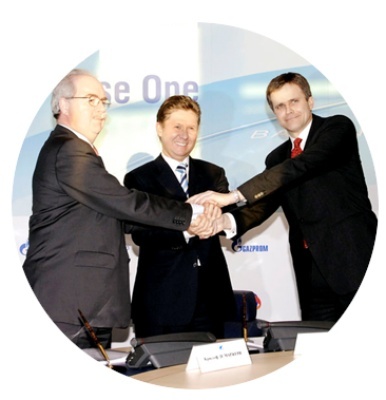On December 1, 2011, Russian NGOs sent the letter to Gazprom, Statoil and Total asking them not to adopt the final investment decision until the environmental risks are evaluated and a plan for elimination of accident consequences is ready.
To the Chairman of the Board of Directors of JSC “Gazprom” Aleksey Miller
117997, Moscow, GSP-7, Nametkina st., 16
To the President of Statoil, Helge Lund
15054, Moscow, Paveletskaya sqw., 2, build.2, representation office of Statoil ASA
To the Total Exploration Production Russie, Pierre Nerguararian
125047, Moscow, 1st Tverskaya-yamskaya 21
Dear Sirs,
On November 15 2011 Shtokman Development AG (SDAG) hosted a meeting with representatives of a number of Russian environmental NGO and the project leaders for development of the Shtokman gas condensate field. According to the representatives of the company, this December a shareholder meeting of Shtokman Development AG (SDAG) is expected to adopt an investment decision on this project.
We would like to draw your attention to the fact that, according to the information provided by the Shtokman project developers at this meeting, SDAG does not possess sufficient fundamental data in order to make an informed investment decision. Specifically, at this point the following information is absent:
— A plan for elimination of accident consequences, including accidental spills of condensate, or for managing gas leaks, which would contain a risk analysis, evaluation of non-project accidents, or an enumeration of capacities and means necessary for an adequate reaction.
According to the conclusion presented by representatives of the company NMTs Informatika Riska, which prepared a risk analysis for accidental hydrocarbon releases during development of the Shtokman field ,the proposed project still needs to develop certain plans for elimination of the accidental situations that may arise during drilling, both for coastal and sea-based operations, for gas lines, terminals, in-shore waters, as well as an overall plan for their use.
You may also want to consider that at the current time Russian Federation does not possess a marine service for spill response or a system for satellite monitoring of hydrocarbon spills in icey conditions. This translates into additional financial expenditures for creation of an infrastructure for elimination of accidental situations that must be considered, guaranteed and provided for already at the stage of project development.
–Guarantee of financing sufficient for covering payment of damages that may result from accidental consequences to the environment (both natural and socioeconomic) as required by article 10 of Federal Law “On Industrial Security of Dangerous Industrial Installations”.
–A complex assessment of environmental impact, including effect on the bird life, acoustic effects, effect of gas hydrates on flora and fauna, effect on climate, including economic evaluation of measures for minimization and prevention of or compensation for these effects.
The area of effect that this project encompasses specially protected natural territories as well as habitats of endangered species. Any damage to such valuable ecosystems will lead to considerable compensation requirements that need to be considered and guaranteed at the planning stage of the project.
According to the assessment presented by the representatives of the company, a full accounting of environmental factors will make the project unprofitable.
–Risk assessment of the project in connection with climate changes and measures for lowering the risks, including infrastructural changes.
Shtokman Development AG currently lacks any climate-related policy, which can lead not only to the increase of the project’s effect on climate change, but also to an incorrect view of the profitability of the project due to underestimating risks associated with climate change. These risks include: changes in the quantity and distribution of precipitation, ice cover, increase of storms and hurricanes, sea-level rises, changes of coast line, higher incidence of disease among the population and many other aspects that require evaluation at the planning stages of the project.
In addition the introduction of limits for emissions of greenhouse gases on international and national levels is already conducive to a change in consumer behavior and demand, increase of the proportion of hydrocarbons’ cost in the overall price of certain elements of the project, and necessity to adhere to new mandatory energy efficiency standards .
All of these aspects, combined with the necessity of additional insurance associated with the increase in physical risks resulting from climate change will require further financial expenditures not currently considered.
–Economic evaluation of consequences for the project as a result of a potential introduction of an EU regulation on the use of ship diesel oil in vessels operating in the Arctic.
In light of these facts, we would like to express our concern that any investment decision made without full consideration and guarantees of financial costs associated with eliminating consequences of accidents and minimization/compensation for environmental damages, cannot be adequate.
We call on share holders of Shtokman Development AG to consider the information presented above and to refrain from making a decision on the financing of the project until all the gaps in the evaluation of environmental risks have been eliminated and a plan for elimination of consequences of the accident is developed.
We also call on Shtokman Development AG top follow the example of such companies as Cairn Energy and Shell and post on the Internet a developed plan for elimination of emergency spills as well as environmental assessment evaluation in order to enable a broad public discussion.
Sincerely,
Greenpeace Russia, Head of Energy Unit, Vladimir Chuprov
Murmansk Regional Public Environmental Organization “Bellona Murmansk”, Energy projects coordinator, Nina Lesikhina
Russian public organization Institute of environmental law problems, executive director, Vitaliy Gorokhov
Non-commercial partnership “Green Line”, executive director, Andrey Rogozhin
Russian public organization Socio-Environmental union, co-chairman, Kulikova E.
Murmansk Regional Public Organization “Wild Nature Protection Center of Kola region”, chairman, Kobyakov K.
Murmansk Regional Public Environmental Organization “Environmental center of Kola region”, executive director, Ivanov Y.




